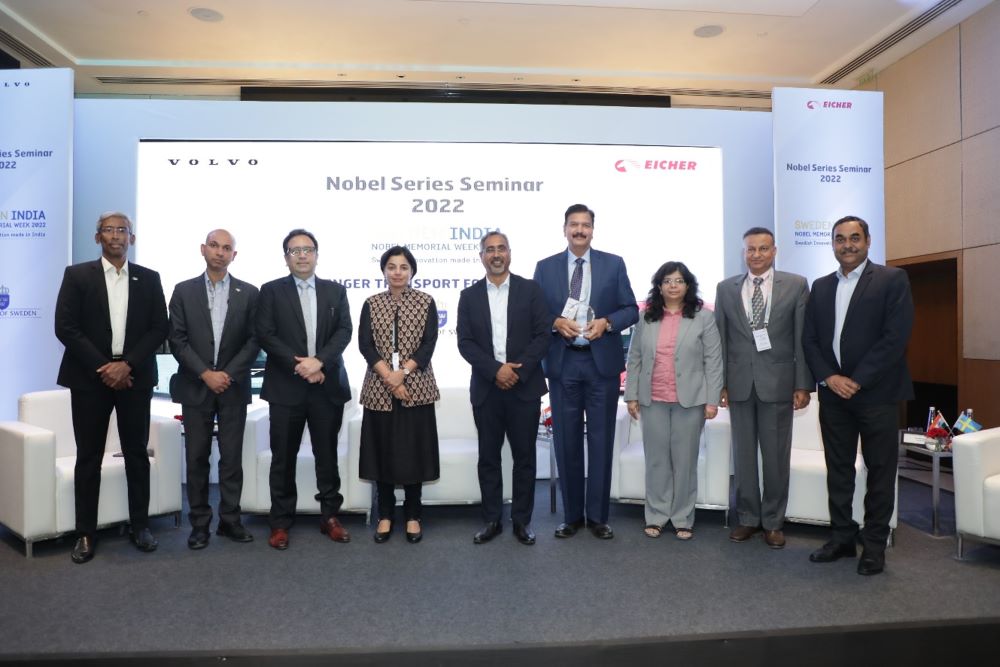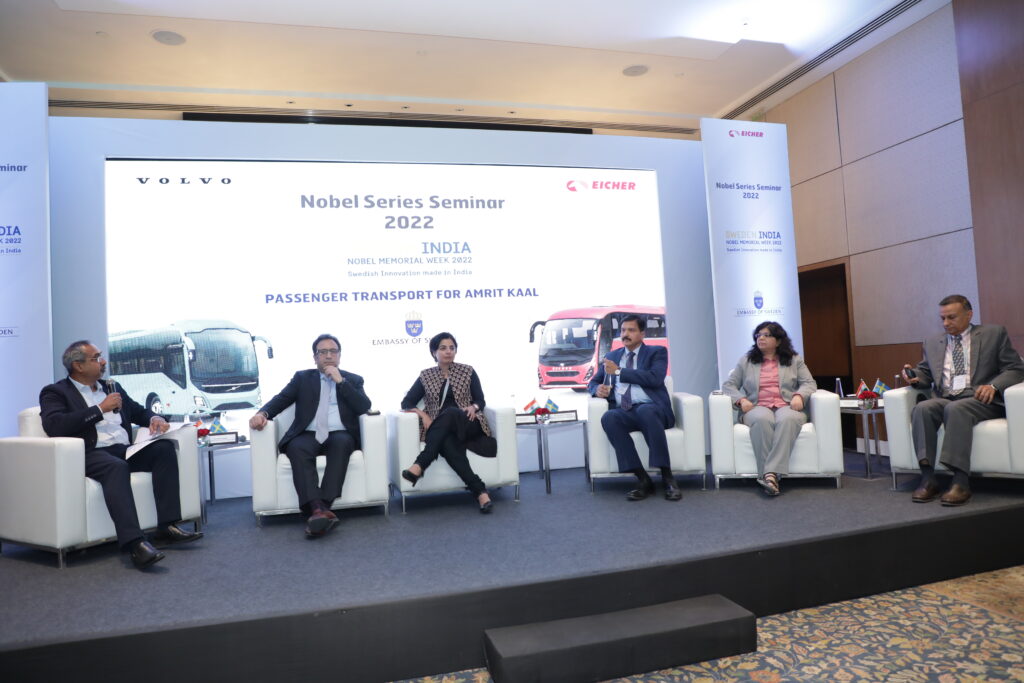VE Commercial Vehicles, a Joint Venture between Sweden’s Volvo Group and India’s Eicher Motors, successfully organised the Nobel Series Seminar 2022 under the patronage of Sweden’s Ambassador to India in Delhi. Since its inception in 2009, the Nobel Series Seminar has sought to provide an inclusive platform for public transport stakeholders to deliberate and arrive at measurable outcomes to drive sustainable and scalable public transport.

The latest edition was themed: Public Transport: Passenger Transport during Amrit Kaal – in keeping with the government’s ambitious vision to improve the quality of life of all Indians by boosting digital and physical connectivity.
In his inaugural address, His Excellency Jan Thesleff, Ambassador of Sweden to India stated that “Transport is an integral part of a comprehensive Indo-Sweden partnership that kicked off in 2018. Sustainability is in the Swedish DNA. Blend the blue and yellow colours of the Swedish flag and you have green!’
Akash Passey, President Bus Division and e-mobility, VE Commercial Vehicles commented, “A Volvo Group JV since 2008, VECV offers end-end people and cargo movement solutions. We are also privileged to actively participate and lead the industry in the domains of digitization and green mobility. The congruence between Swedish technical expertise and Indian engineering mettle is bearing rich dividends”
Panel Discussion
Akash Passey also hosted a panel discussion around the theme of the event. Participants included, Ashish Kundra, IAS, Principal Secretary cum Commissioner (Transport), Government of the National Capital Territory of Delhi, Mahua Acharya, MD, and CEO, Convergence Energy Solutions Limited, Prasanna Pathwardhan, Chairperson and Managing Director, Prasanna Group of Companies and President Bus and Car Operators Confederation of India, Dr. SK Lohia, Senior Advisor, World Bank and Rupa Nandy, Head UITP India.

At the heart of the deliberations, were three themes:
(a) how can we scale up bus-based public transport?
(b) How do we foster seamless multimodality?
(c) How can the e-mobility push be made broad-based and sustainable?
‘Bus-based public transport has no single nodal authority unlike the railways. We need a central mobility fund that covers all modes of transport under an integrated multimodal management authority,’ asserted Pathwardhan.
‘In scaling up the bus-based public transport sector, it is important that lessons are imbibed from the railways which have proper systems of improving rolling stock specifications, training, resource allocation and development of non-farebox revenues,’ added Dr. Lohia.
As the discussion steered towards e-mobility Acharya stated, ‘At CESL we will continue to put out large and well-structured tenders. Given the scale, we recognise that currently OEMs must participate in fleet operational management as well. However, private operators should also find it easier to participate once the financing question is resolved. We are working with various stakeholder Ministries to develop such a mechanism.’
With its global presence, UITP engages with global private operators. ‘They all understand that India is a large volume market. They will also be keen to participate here once the issue of payment security and ease of doing business is addressed,’ observed Rupa Nandy.
As for Delhi, it has the paradox of being the largest operator of multimodal public transport systems while also having the largest personal vehicle population. Kundra opined, ‘Delhi is a success story when it comes to public private partnerships for public transport and green mobility. The future lies in reforms of the public transport sector and unbundling of regulations and operations will help drive scale and efficiencies.’
The seminar saw an active engagement of the panellists with the vibrant audience comprising fleet operators, transport experts and the media.